Events
| Name | organizer | Where |
|---|---|---|
| MBCC “Doing Business with Mongolia seminar and Christmas Receptiom” Dec 10. 2025 London UK | MBCCI | London UK Goodman LLC |
NEWS

Buyant-Ukhaa to be used as backup airport and business hub www.montsame.mn
With the opening of the Chinggis Khaan International Airport in the Khushig Valley, the Cabinet has decided to use the Buyant-Ukhaa Airport for civil aviation. Specifically, the airport will be used as a backup facility, reports Civil Aviation Authority of Mongolia. The annual cost is estimated to be MNT 9.8 billion.
“The cost can be recouped by putting the airport into economic circulation, and turning it into a business hub. We have received to cooperation proposals from numerous organizations which operate in the field of training, business, banking and finance. We plan to cooperate with international financial institutions as part of our 'Attractive Airport' policy,” said Chief of Civil Aviation Authority of Mongolia (MCAA) S.Munkhnasan during the meeting with the staff of the Aviation Information Service and the Buyant-Ukhaa Airport.
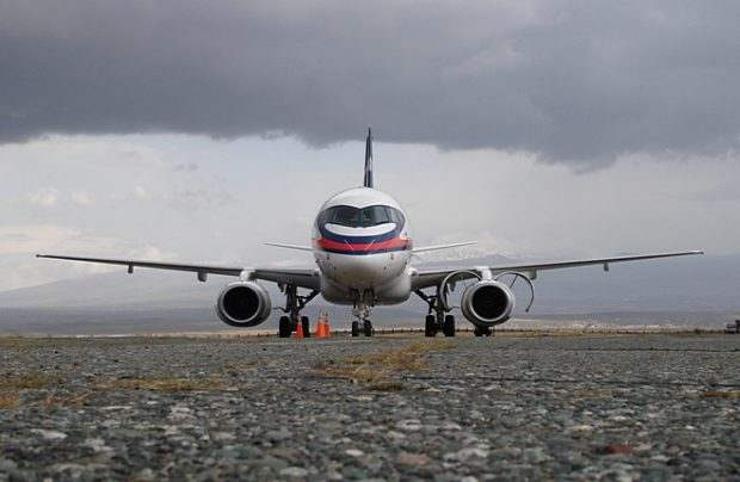
Russian airline makes 1st flight with ‘green’ fuel www.rt.com
Russia’s S7 Airlines has successfully carried out the country’s first flight on sustainable aviation fuel (SAF).
The A320neo – which flew from the Airbus plant in Toulouse, France to Moscow – was fueled entirely by a mixture of SAF, consisting of organic compounds and classic aviation fuel. The fuel used for the flight had 10% of biofuel in it, but “even this amount reduced CO2 emissions on this flight by 7%,” or 1.7 tons, the airline said in a statement.
According to S7, the total use of SAF in the world currently stands at 0.03%. The airline carrier recently announced plans to achieve carbon neutrality by 2050.
Meanwhile, last week, several Russian airlines, including Aeroflot, announced the creation of the Eurasian SAF Alliance, which aims to start operating SAF-fueled flights in Russia on a regular basis no later than 2024.
“This is an opportunity for us to demonstrate that such flights are real and that they are the future of sustainable air transportation,” said S7 CEO Tatiana Fileva, adding that it is now up to the fuel sector to organize sufficient SAF production in the medium term.
The head of Airbus in Russia, Julien Franyatt, noted that Airbus planes are currently certified to fly on 50% of the SAF mixture, but the company plans to increase this figure to 100% by the end of the decade. Airbus has already delivered more than 75 planes using SAF, and a number of airlines around the world are already using the fuel for commercial flights. Most recently, US-based United Airlines operated the first-ever passenger flight using 100% SAF on one of its plane’s two engines on December 3.
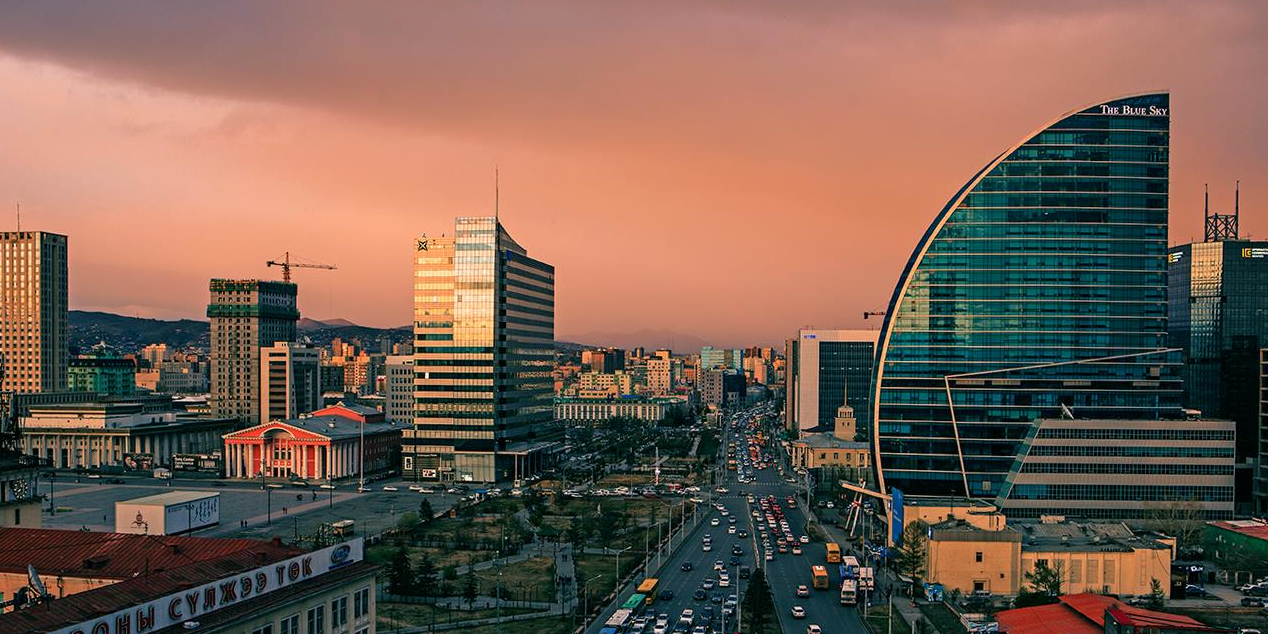
Mongolia bans public celebration of White Moon festival due to pandemic www.xinhuanet.com
Dec. 22 (Xinhua) -- Mongolia on Wednesday banned public celebrations of the traditional White Moon festival or the Lunar New Year due to the COVID-19 pandemic.
"The government has decided not to widely celebrate the upcoming White Moon due to the pandemic," the government's press office said in a statement.
Mongolians will be allowed to celebrate the holiday with their family members, it said.
The White Moon, one of the most celebrated and important holidays in Mongolia, symbolizes the start of spring and end of winter.
As of Wednesday, Mongolia has registered a total number of 388,872 COVID-19 infections, with 1,977 related deaths.
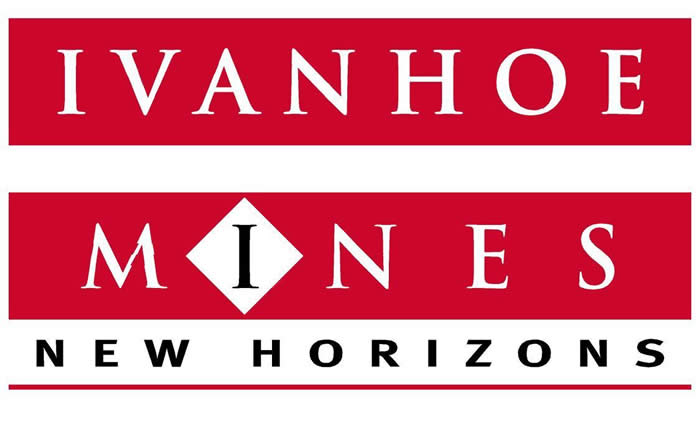
Ivanhoe’s Kamoa exceeds annual copper guidance, with over 100,000t YTD www.mining.com
Ivanhoe Mines (TSX: IVN) announced on Wednesday that its Kamoa-Kakula joint venture in the Democratic Republic of Congo (DRC) has exceeded the upper end of its annual copper production guidance, with more than 100,000 tonnes of copper concentrate produced year-to-date, as of December 22.
The production figure is reported on a 100%-project basis. Ivanhoe has a 39.6% interest in the Kamoa JV and is the project operator. Zijin Mining Group (39.6%), Crystal River Global (0.8%) and the DRC government (20%) are its other stakeholders.
SIGN UP FOR THE COPPER DIGEST
Kamoa-Kakula first began producing copper concentrates from the Phase 1, 3.8mtpa capacity concentrator plant in May 2021. It subsequently reached commercial production on July 1, and is expected to produce 200,000 tonnes of copper per year.
Construction of the Phase 2 concentrator, which would be a “carbon copy” of the Phase 1 plant and double the annual production, is currently underway and is about 70% complete, according to Ivanhoe’s latest update.
Ivanhoe’s production guidance for 2021 was set at 92,500-100,000 tonnes, which was originally projected to be 80,000-95,000 tonnes. The annual production guidance was also previously increased in November, reflecting the successful completion of ramp-up of the Phase 1 concentrator.
“Kamoa Copper’s performance marks an excellent end to what has truly been a banner year for Ivanhoe Mines,” Ivanhoe’s founder and executive co-chair Robert Friedland said in a news release.
“We would like to extend heartfelt congratulations to the team at Kamoa-Kakula, who consistently exceeded expectations during the construction and development of the world’s newest world-scale copper mine, and have continued that outperformance as we have moved through ramp-up and into full production,” Friedland added.
Friedland also said the Phase 2 expansion remains “significantly ahead of schedule,” and the company is on its way to doubling annual copper production to approximately 400,000 tonnes starting early in Q2 2022.
So far in December, Ivanhoe has seen feed grades in excess of 6% copper, and recoveries have also been exceeding its design recovery of 86%, which, according to Friedland, bodes well for the company’s ability to efficiently ramp-up future expansions at Kamoa-Kakula.
The Ivanhoe management team now envisions the Phase 3 concentrator to enter production by the end of 2024.
Through planned phased expansions, the Kamoa-Kakula underground operation is positioned to become one of the largest copper producers in the world, with peak annual copper production of more than 800,000 tonnes.

Boeing & Airbus urge delay of 5G www.rt.com
The world’s two largest planemakers, Boeing and Airbus, have called on the US government to delay the rollout of new 5G cell services next month, citing an “enormous negative impact on the aviation industry.”
In a joint letter to US Transportation Secretary Pete Buttigieg, the bosses of the two companies warned that “5G interference could adversely affect the ability of aircraft to safely operate.”
The letter cited research by trade group Airlines for America, which found that if the Federal Aviation Administration’s (FAA) 5G rules had been in effect in 2019, about 345,000 passenger flights and 5,400 cargo flights would have faced delays, diversions or cancellations.
According to a new rule, announced by the FAA earlier this month, pilots are forbidden from using auto-landing and other certain flight systems at low altitudes where 5G wireless signals could interfere with onboard instruments that measure a plane’s distance to the ground.
The new rule comes as US telecom giants AT&T and Verizon are due to deploy 5G services on January 5.
Last week, United Airlines CEO Scott Kirby said that the FAA’s 5G directives would bar the use of radio altitude meters at about 40 of America’s biggest airports.
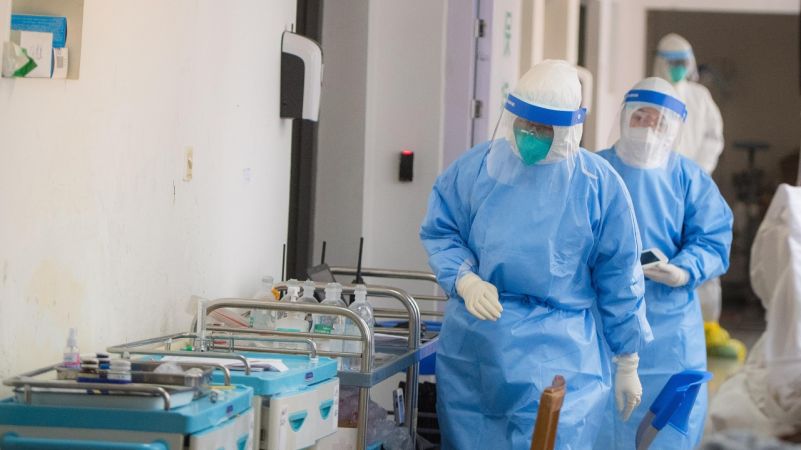
Mongolia records 328 new COVID-19 cases www.xinhuanet.com
Dec. 22 (Xinhua) -- Mongolia's Health Ministry on Wednesday confirmed 328 new COVID-19 cases over the past 24 hours, bringing the national tally to 388,872.
Among the latest confirmed cases, 125 were imported from abroad, and most of them are peacekeepers who have recently returned home from South Sudan, the ministry said.
Meanwhile, three more COVID-19 patients died in the past day, pushing the national death toll to 1,977.
So far, around 66 percent of Mongolia's population of 3.4 million have received two COVID-19 vaccine doses, while 870,175 people have had a booster.

Petro Matad plans Mongolian oil in 2022 www.pemedianetwork.com
Production from the Heron field could peak at 9,000bl/d and feed both exports and the domestic market
AIM-listed independent Petro Matad expects to produce first oil from its Heron-1 well in Mongolia in mid-2022, the firm’s CEO Mike Buck says. The Heron field’s initial output is forecast to be just c.500bl/d. But production is expected to rise to around 6,000bl/d by 2024—roughly when a government refinery is expected to enter service—and to later peak at potentially 9,000bl/d. Covid-19 and the resulting strict Chinese border restrictions made it hard to operate in 2020-21, Buck says, but Petro Matad is now in advanced discussions with service providers to bring Heron-1 into production. The contractors are confident they can fit in the necessary work, despite a backlog of drilling and others..
...

A cross-cultural Christmas in Mongolia www.peacecorps.gov
It was a beautiful, cold, and cloudless day in Mongolia, the “land of blue skies” — a place that had been my home for a little over a year. I swung open the door of my ger (yurt) and breathed in, filling my lungs with cold air. I was craving doenjang jjigae, a Korean soup with vegetables and tofu — one of my favorite Korean foods and one I missed during my time as a Peace Corps Volunteer in Mongolia.
The cold wind nipped at my cheeks as I hurried to get ready for the day. It was Christmas, the second one I was celebrating in Mongolia. I felt homesick and longed to see my family and spend the holiday with them. Our Christmas usually included a huge home-cooked Korean meal complete with barbecued meats, banchan (traditional side dishes), and lots of family time. Instead of all that, I grabbed a piece of arrul, a popular Mongolian snack of dried curds. My mouth puckered with the slightly sour taste as I headed to school.
At school, my students greeted me, wishing me a merry Christmas. For them, it was just another December day, but they knew it was a special day for me because I’d shared Christmas traditions with them the year before. I smiled as I greeted them in English. The presence of my students and the community comforted me. They had accepted me so quickly the previous summer when I started my service as an English teacher.
That Christmas afternoon, as I finished up lessons for the day, Saruul, the only other English teacher at my school, came up to me. “Ashley, should we make a feast?” Sarruul knew Christmas was a big holiday for many Americans. I accepted her offer and we headed to the provincial capital, about 30 miles away, to see what ingredients we could find.
Supermarkets in the capital had more variety than our local markets. We stopped at the largest in the city, where I was surprised to find an assortment of Korean foods — the first time I had seen them in the capital. Excitedly, I scooped up kimchi, deonjang (fermented soybean paste), zucchini, potatoes, and tofu. I was excited to satisfy my craving for Korean soup that night.
When we returned to the village, I headed to my yurt and, as I approached, I noticed the light was on. When I opened the door, I saw that my entire home had been decorated with twinkling lights. A small Christmas tree, decorated with tugriks, (the Mongolian paper currency traditionally used as a New Year’s decoration) stood in the corner. The group of colleagues and friends who had surprised me by decorating my home happily greeted me.
In that moment, I felt so grateful and accepted by my community. I was delighted. My table was overflowing with food and my fellow teachers were singing, "We Wish You a Merry Christmas.”
I made the deonjang soup quickly so that I could contribute it to the Christmas feast. I was worried that the pungent smell and the strong flavor of fermented tofu might put off some of my friends. The flavors were a contrast to the milder soups Mongolians usually ate. But they all loved it and even had seconds. I was so happy to celebrate my Mongolian-Korean-American Christmas with good friends and holiday cheer.
Ashley Baek
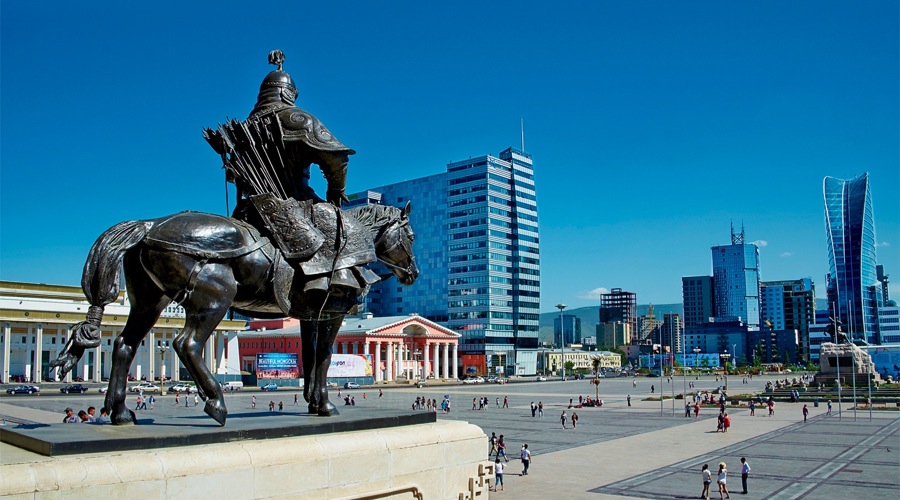
No license required for 74 types of services www.montsame.mn
As the Governor of the Capital City and Mayor of Ulaanbaatar D.Sumiyabazar made a decision, 74 types of services will not be required special license from January 1.
Businesspeople can run these 74 types of services in the capital city by just registering it and should adhere relevant laws, regulations, standards and requirements. The types of the services to be allowed without special license include;
Wholesale center
Warehouse store
Shopping center
Market (construction materials, wood, auto equipment, etc.)
Department store
Hypermarket
Supermarket
Exhibition hall
Outlet
Mini market
Grocery store
Convenient chain store
Specialty goods store
Kiosk
Service point or kiosk
Seasonal temporary trade
Point of sale for recycled products
Restaurant
Bars, discos, billiards, karaoke and more
Cafe
Cafeteria (Public and corporate)
Fast food and chain restaurants
Coffee Shop
Mobile fast food service
Hairdresser
Beauty salon
Nail repair
Clothing ordering and repair
Shoe order and repair
Home furniture ordering and repair
Repair of household electronic appliances
Gold and silver jewelry orders and repairs
Bag ordering and repair
Glasses order and repair
Locks and keys order and repair
Dry cleaning and laundry services
Photo and video services
Cleaning service
Goods rental services
Hotel
Inn
Tourist camp
Camp
Ger hotel
Public bath
Sauna
Swimming pool
Fitness center, fitness, spinnig, aerobics, yoga, dance, etc.
Relaxation center and massage
Public toilets
Auto repair
Tire repair
Car wash service
Sale of consumables such as auto parts, lubricants and other batteries, ornaments and tires
Accommodation services
Issuance of a new hotel license
Extension of hotel license
Issuance of a permit to operate a hotel
Extension of the license to operate a hotel
Extension of the license to operate a tourist camp or resort
New and renewed licenses for arts, music, film, dance, drama, fashion, presenter, actor, stage speech, public speaking, painting, photography, various embroidery, makeup, and training facilities
Extension of the issuance and renewal of a new license for the screening of video and video films
Obtain a new license to run a strip club
Extension of new licenses for billiards, bowling and screen golf slot machines
Extension of a new permit to run a disco club
Extension and re-issuance of karaoke license
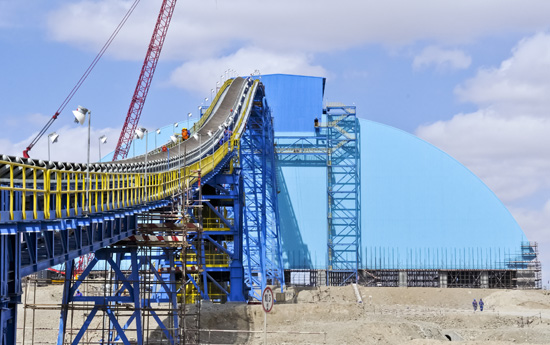
Draft resolution to increase benefits to Mongolia from Oyu Tolgoi project to be considered urgently www.montsame.mn
At the regular meeting of the Cabinet on December 22, the draft resolution on Measures to be taken to ensure the benefits to Mongolia from Oyu Tolgoi gold-copper mine has been supported and submitted to the Parliament for urgent consideration. It was stressed by Minister of Justice and Home Affairs Kh.Nyambaatar during a press conference to present the decisions of the Cabinet meeting.
Following measures reflected in the draft resolution:
- To write off Mongolia's USD 2.3 billion-debt for its share (34 percent) in the Oyu Tolgoi copper-gold project.
- To terminate the Oyu Tolgoi Underground Mine Development and Financing Plan, known as ‘Dubai Agreement’ and conduct an independent audit into the financing of the project's underground expansion;
- The costs required until the first half of 2023, when the underground mine is commissioned, shall be covered by the investors, not incurring additional debts to Erdenes Oyu Tolgoi LLC;
- To supply electricity for Oyu Tolgoi project from the energy grid of Mongolia
- To ensure the implementation of tax acts
Today the draft resolution is planned to be discussed by the Temporary committee in charge of taking control on the implementation of the parliamentary resolution No.92 dated November 21, 2019, on ‘Ensuring the interests of Mongolia in the exploitation of the Oyu Tolgoi gold-copper mine’, developing proposals if necessary and presenting its results at the plenary meeting.
Minister of Justice and Home Affairs Kh.Nyambaatar emphasized that if the resolution is approved and gives authority to the Government, more than 10 documents will be developed and the arbitration disputes between the two sides will be resolved amicably.
- «
- 1
- 2
- 3
- 4
- 5
- 6
- 7
- 8
- 9
- 10
- 11
- 12
- 13
- 14
- 15
- 16
- 17
- 18
- 19
- 20
- 21
- 22
- 23
- 24
- 25
- 26
- 27
- 28
- 29
- 30
- 31
- 32
- 33
- 34
- 35
- 36
- 37
- 38
- 39
- 40
- 41
- 42
- 43
- 44
- 45
- 46
- 47
- 48
- 49
- 50
- 51
- 52
- 53
- 54
- 55
- 56
- 57
- 58
- 59
- 60
- 61
- 62
- 63
- 64
- 65
- 66
- 67
- 68
- 69
- 70
- 71
- 72
- 73
- 74
- 75
- 76
- 77
- 78
- 79
- 80
- 81
- 82
- 83
- 84
- 85
- 86
- 87
- 88
- 89
- 90
- 91
- 92
- 93
- 94
- 95
- 96
- 97
- 98
- 99
- 100
- 101
- 102
- 103
- 104
- 105
- 106
- 107
- 108
- 109
- 110
- 111
- 112
- 113
- 114
- 115
- 116
- 117
- 118
- 119
- 120
- 121
- 122
- 123
- 124
- 125
- 126
- 127
- 128
- 129
- 130
- 131
- 132
- 133
- 134
- 135
- 136
- 137
- 138
- 139
- 140
- 141
- 142
- 143
- 144
- 145
- 146
- 147
- 148
- 149
- 150
- 151
- 152
- 153
- 154
- 155
- 156
- 157
- 158
- 159
- 160
- 161
- 162
- 163
- 164
- 165
- 166
- 167
- 168
- 169
- 170
- 171
- 172
- 173
- 174
- 175
- 176
- 177
- 178
- 179
- 180
- 181
- 182
- 183
- 184
- 185
- 186
- 187
- 188
- 189
- 190
- 191
- 192
- 193
- 194
- 195
- 196
- 197
- 198
- 199
- 200
- 201
- 202
- 203
- 204
- 205
- 206
- 207
- 208
- 209
- 210
- 211
- 212
- 213
- 214
- 215
- 216
- 217
- 218
- 219
- 220
- 221
- 222
- 223
- 224
- 225
- 226
- 227
- 228
- 229
- 230
- 231
- 232
- 233
- 234
- 235
- 236
- 237
- 238
- 239
- 240
- 241
- 242
- 243
- 244
- 245
- 246
- 247
- 248
- 249
- 250
- 251
- 252
- 253
- 254
- 255
- 256
- 257
- 258
- 259
- 260
- 261
- 262
- 263
- 264
- 265
- 266
- 267
- 268
- 269
- 270
- 271
- 272
- 273
- 274
- 275
- 276
- 277
- 278
- 279
- 280
- 281
- 282
- 283
- 284
- 285
- 286
- 287
- 288
- 289
- 290
- 291
- 292
- 293
- 294
- 295
- 296
- 297
- 298
- 299
- 300
- 301
- 302
- 303
- 304
- 305
- 306
- 307
- 308
- 309
- 310
- 311
- 312
- 313
- 314
- 315
- 316
- 317
- 318
- 319
- 320
- 321
- 322
- 323
- 324
- 325
- 326
- 327
- 328
- 329
- 330
- 331
- 332
- 333
- 334
- 335
- 336
- 337
- 338
- 339
- 340
- 341
- 342
- 343
- 344
- 345
- 346
- 347
- 348
- 349
- 350
- 351
- 352
- 353
- 354
- 355
- 356
- 357
- 358
- 359
- 360
- 361
- 362
- 363
- 364
- 365
- 366
- 367
- 368
- 369
- 370
- 371
- 372
- 373
- 374
- 375
- 376
- 377
- 378
- 379
- 380
- 381
- 382
- 383
- 384
- 385
- 386
- 387
- 388
- 389
- 390
- 391
- 392
- 393
- 394
- 395
- 396
- 397
- 398
- 399
- 400
- 401
- 402
- 403
- 404
- 405
- 406
- 407
- 408
- 409
- 410
- 411
- 412
- 413
- 414
- 415
- 416
- 417
- 418
- 419
- 420
- 421
- 422
- 423
- 424
- 425
- 426
- 427
- 428
- 429
- 430
- 431
- 432
- 433
- 434
- 435
- 436
- 437
- 438
- 439
- 440
- 441
- 442
- 443
- 444
- 445
- 446
- 447
- 448
- 449
- 450
- 451
- 452
- 453
- 454
- 455
- 456
- 457
- 458
- 459
- 460
- 461
- 462
- 463
- 464
- 465
- 466
- 467
- 468
- 469
- 470
- 471
- 472
- 473
- 474
- 475
- 476
- 477
- 478
- 479
- 480
- 481
- 482
- 483
- 484
- 485
- 486
- 487
- 488
- 489
- 490
- 491
- 492
- 493
- 494
- 495
- 496
- 497
- 498
- 499
- 500
- 501
- 502
- 503
- 504
- 505
- 506
- 507
- 508
- 509
- 510
- 511
- 512
- 513
- 514
- 515
- 516
- 517
- 518
- 519
- 520
- 521
- 522
- 523
- 524
- 525
- 526
- 527
- 528
- 529
- 530
- 531
- 532
- 533
- 534
- 535
- 536
- 537
- 538
- 539
- 540
- 541
- 542
- 543
- 544
- 545
- 546
- 547
- 548
- 549
- 550
- 551
- 552
- 553
- 554
- 555
- 556
- 557
- 558
- 559
- 560
- 561
- 562
- 563
- 564
- 565
- 566
- 567
- 568
- 569
- 570
- 571
- 572
- 573
- 574
- 575
- 576
- 577
- 578
- 579
- 580
- 581
- 582
- 583
- 584
- 585
- 586
- 587
- 588
- 589
- 590
- 591
- 592
- 593
- 594
- 595
- 596
- 597
- 598
- 599
- 600
- 601
- 602
- 603
- 604
- 605
- 606
- 607
- 608
- 609
- 610
- 611
- 612
- 613
- 614
- 615
- 616
- 617
- 618
- 619
- 620
- 621
- 622
- 623
- 624
- 625
- 626
- 627
- 628
- 629
- 630
- 631
- 632
- 633
- 634
- 635
- 636
- 637
- 638
- 639
- 640
- 641
- 642
- 643
- 644
- 645
- 646
- 647
- 648
- 649
- 650
- 651
- 652
- 653
- 654
- 655
- 656
- 657
- 658
- 659
- 660
- 661
- 662
- 663
- 664
- 665
- 666
- 667
- 668
- 669
- 670
- 671
- 672
- 673
- 674
- 675
- 676
- 677
- 678
- 679
- 680
- 681
- 682
- 683
- 684
- 685
- 686
- 687
- 688
- 689
- 690
- 691
- 692
- 693
- 694
- 695
- 696
- 697
- 698
- 699
- 700
- 701
- 702
- 703
- 704
- 705
- 706
- 707
- 708
- 709
- 710
- 711
- 712
- 713
- 714
- 715
- 716
- 717
- 718
- 719
- 720
- 721
- 722
- 723
- 724
- 725
- 726
- 727
- 728
- 729
- 730
- 731
- 732
- 733
- 734
- 735
- 736
- 737
- 738
- 739
- 740
- 741
- 742
- 743
- 744
- 745
- 746
- 747
- 748
- 749
- 750
- 751
- 752
- 753
- 754
- 755
- 756
- 757
- 758
- 759
- 760
- 761
- 762
- 763
- 764
- 765
- 766
- 767
- 768
- 769
- 770
- 771
- 772
- 773
- 774
- 775
- 776
- 777
- 778
- 779
- 780
- 781
- 782
- 783
- 784
- 785
- 786
- 787
- 788
- 789
- 790
- 791
- 792
- 793
- 794
- 795
- 796
- 797
- 798
- 799
- 800
- 801
- 802
- 803
- 804
- 805
- 806
- 807
- 808
- 809
- 810
- 811
- 812
- 813
- 814
- 815
- 816
- 817
- 818
- 819
- 820
- 821
- 822
- 823
- 824
- 825
- 826
- 827
- 828
- 829
- 830
- 831
- 832
- 833
- 834
- 835
- 836
- 837
- 838
- 839
- 840
- 841
- 842
- 843
- 844
- 845
- 846
- 847
- 848
- 849
- 850
- 851
- 852
- 853
- 854
- 855
- 856
- 857
- 858
- 859
- 860
- 861
- 862
- 863
- 864
- 865
- 866
- 867
- 868
- 869
- 870
- 871
- 872
- 873
- 874
- 875
- 876
- 877
- 878
- 879
- 880
- 881
- 882
- 883
- 884
- 885
- 886
- 887
- 888
- 889
- 890
- 891
- 892
- 893
- 894
- 895
- 896
- 897
- 898
- 899
- 900
- 901
- 902
- 903
- 904
- 905
- 906
- 907
- 908
- 909
- 910
- 911
- 912
- 913
- 914
- 915
- 916
- 917
- 918
- 919
- 920
- 921
- 922
- 923
- 924
- 925
- 926
- 927
- 928
- 929
- 930
- 931
- 932
- 933
- 934
- 935
- 936
- 937
- 938
- 939
- 940
- 941
- 942
- 943
- 944
- 945
- 946
- 947
- 948
- 949
- 950
- 951
- 952
- 953
- 954
- 955
- 956
- 957
- 958
- 959
- 960
- 961
- 962
- 963
- 964
- 965
- 966
- 967
- 968
- 969
- 970
- 971
- 972
- 973
- 974
- 975
- 976
- 977
- 978
- 979
- 980
- 981
- 982
- 983
- 984
- 985
- 986
- 987
- 988
- 989
- 990
- 991
- 992
- 993
- 994
- 995
- 996
- 997
- 998
- 999
- 1000
- 1001
- 1002
- 1003
- 1004
- 1005
- 1006
- 1007
- 1008
- 1009
- 1010
- 1011
- 1012
- 1013
- 1014
- 1015
- 1016
- 1017
- 1018
- 1019
- 1020
- 1021
- 1022
- 1023
- 1024
- 1025
- 1026
- 1027
- 1028
- 1029
- 1030
- 1031
- 1032
- 1033
- 1034
- 1035
- 1036
- 1037
- 1038
- 1039
- 1040
- 1041
- 1042
- 1043
- 1044
- 1045
- 1046
- 1047
- 1048
- 1049
- 1050
- 1051
- 1052
- 1053
- 1054
- 1055
- 1056
- 1057
- 1058
- 1059
- 1060
- 1061
- 1062
- 1063
- 1064
- 1065
- 1066
- 1067
- 1068
- 1069
- 1070
- 1071
- 1072
- 1073
- 1074
- 1075
- 1076
- 1077
- 1078
- 1079
- 1080
- 1081
- 1082
- 1083
- 1084
- 1085
- 1086
- 1087
- 1088
- 1089
- 1090
- 1091
- 1092
- 1093
- 1094
- 1095
- 1096
- 1097
- 1098
- 1099
- 1100
- 1101
- 1102
- 1103
- 1104
- 1105
- 1106
- 1107
- 1108
- 1109
- 1110
- 1111
- 1112
- 1113
- 1114
- 1115
- 1116
- 1117
- 1118
- 1119
- 1120
- 1121
- 1122
- 1123
- 1124
- 1125
- 1126
- 1127
- 1128
- 1129
- 1130
- 1131
- 1132
- 1133
- 1134
- 1135
- 1136
- 1137
- 1138
- 1139
- 1140
- 1141
- 1142
- 1143
- 1144
- 1145
- 1146
- 1147
- 1148
- 1149
- 1150
- 1151
- 1152
- 1153
- 1154
- 1155
- 1156
- 1157
- 1158
- 1159
- 1160
- 1161
- 1162
- 1163
- 1164
- 1165
- 1166
- 1167
- 1168
- 1169
- 1170
- 1171
- 1172
- 1173
- 1174
- 1175
- 1176
- 1177
- 1178
- 1179
- 1180
- 1181
- 1182
- 1183
- 1184
- 1185
- 1186
- 1187
- 1188
- 1189
- 1190
- 1191
- 1192
- 1193
- 1194
- 1195
- 1196
- 1197
- 1198
- 1199
- 1200
- 1201
- 1202
- 1203
- 1204
- 1205
- 1206
- 1207
- 1208
- 1209
- 1210
- 1211
- 1212
- 1213
- 1214
- 1215
- 1216
- 1217
- 1218
- 1219
- 1220
- 1221
- 1222
- 1223
- 1224
- 1225
- 1226
- 1227
- 1228
- 1229
- 1230
- 1231
- 1232
- 1233
- 1234
- 1235
- 1236
- 1237
- 1238
- 1239
- 1240
- 1241
- 1242
- 1243
- 1244
- 1245
- 1246
- 1247
- 1248
- 1249
- 1250
- 1251
- 1252
- 1253
- 1254
- 1255
- 1256
- 1257
- 1258
- 1259
- 1260
- 1261
- 1262
- 1263
- 1264
- 1265
- 1266
- 1267
- 1268
- 1269
- 1270
- 1271
- 1272
- 1273
- 1274
- 1275
- 1276
- 1277
- 1278
- 1279
- 1280
- 1281
- 1282
- 1283
- 1284
- 1285
- 1286
- 1287
- 1288
- 1289
- 1290
- 1291
- 1292
- 1293
- 1294
- 1295
- 1296
- 1297
- 1298
- 1299
- 1300
- 1301
- 1302
- 1303
- 1304
- 1305
- 1306
- 1307
- 1308
- 1309
- 1310
- 1311
- 1312
- 1313
- 1314
- 1315
- 1316
- 1317
- 1318
- 1319
- 1320
- 1321
- 1322
- 1323
- 1324
- 1325
- 1326
- 1327
- 1328
- 1329
- 1330
- 1331
- 1332
- 1333
- 1334
- 1335
- 1336
- 1337
- 1338
- 1339
- 1340
- 1341
- 1342
- 1343
- 1344
- 1345
- 1346
- 1347
- 1348
- 1349
- 1350
- 1351
- 1352
- 1353
- 1354
- 1355
- 1356
- 1357
- 1358
- 1359
- 1360
- 1361
- 1362
- 1363
- 1364
- 1365
- 1366
- 1367
- 1368
- 1369
- 1370
- 1371
- 1372
- 1373
- 1374
- 1375
- 1376
- 1377
- 1378
- 1379
- 1380
- 1381
- 1382
- 1383
- 1384
- 1385
- 1386
- 1387
- 1388
- 1389
- 1390
- 1391
- 1392
- 1393
- 1394
- 1395
- 1396
- 1397
- 1398
- 1399
- 1400
- 1401
- 1402
- 1403
- 1404
- 1405
- 1406
- 1407
- 1408
- 1409
- 1410
- 1411
- 1412
- 1413
- 1414
- 1415
- 1416
- 1417
- 1418
- 1419
- 1420
- 1421
- 1422
- 1423
- 1424
- 1425
- 1426
- 1427
- 1428
- 1429
- 1430
- 1431
- 1432
- 1433
- 1434
- 1435
- 1436
- 1437
- 1438
- 1439
- 1440
- 1441
- 1442
- 1443
- 1444
- 1445
- 1446
- 1447
- 1448
- 1449
- 1450
- 1451
- 1452
- 1453
- 1454
- 1455
- 1456
- 1457
- 1458
- 1459
- 1460
- 1461
- 1462
- 1463
- 1464
- 1465
- 1466
- 1467
- 1468
- 1469
- 1470
- 1471
- 1472
- 1473
- 1474
- 1475
- 1476
- 1477
- 1478
- 1479
- 1480
- 1481
- 1482
- 1483
- 1484
- 1485
- 1486
- 1487
- 1488
- 1489
- 1490
- 1491
- 1492
- 1493
- 1494
- 1495
- 1496
- 1497
- 1498
- 1499
- 1500
- 1501
- 1502
- 1503
- 1504
- 1505
- 1506
- 1507
- 1508
- 1509
- 1510
- 1511
- 1512
- 1513
- 1514
- 1515
- 1516
- 1517
- 1518
- 1519
- 1520
- 1521
- 1522
- 1523
- 1524
- 1525
- 1526
- 1527
- 1528
- 1529
- 1530
- 1531
- 1532
- 1533
- 1534
- 1535
- 1536
- 1537
- 1538
- 1539
- 1540
- 1541
- 1542
- 1543
- 1544
- 1545
- 1546
- 1547
- 1548
- 1549
- 1550
- 1551
- 1552
- 1553
- 1554
- 1555
- 1556
- 1557
- 1558
- 1559
- 1560
- 1561
- 1562
- 1563
- 1564
- 1565
- 1566
- 1567
- 1568
- 1569
- 1570
- 1571
- 1572
- 1573
- 1574
- 1575
- 1576
- 1577
- 1578
- 1579
- 1580
- 1581
- 1582
- 1583
- 1584
- 1585
- 1586
- 1587
- 1588
- 1589
- 1590
- 1591
- 1592
- 1593
- 1594
- 1595
- 1596
- 1597
- 1598
- 1599
- 1600
- 1601
- 1602
- 1603
- 1604
- 1605
- 1606
- 1607
- 1608
- 1609
- 1610
- 1611
- 1612
- 1613
- 1614
- 1615
- 1616
- 1617
- 1618
- 1619
- 1620
- 1621
- 1622
- 1623
- 1624
- 1625
- 1626
- 1627
- 1628
- 1629
- 1630
- 1631
- 1632
- 1633
- 1634
- 1635
- 1636
- 1637
- 1638
- 1639
- 1640
- 1641
- 1642
- 1643
- 1644
- 1645
- 1646
- 1647
- 1648
- 1649
- 1650
- 1651
- 1652
- 1653
- 1654
- 1655
- 1656
- 1657
- 1658
- 1659
- 1660
- 1661
- 1662
- 1663
- 1664
- 1665
- 1666
- 1667
- 1668
- 1669
- 1670
- 1671
- 1672
- 1673
- 1674
- 1675
- 1676
- 1677
- 1678
- 1679
- 1680
- 1681
- 1682
- 1683
- 1684
- 1685
- 1686
- 1687
- 1688
- 1689
- 1690
- 1691
- 1692
- 1693
- 1694
- 1695
- 1696
- 1697
- 1698
- 1699
- 1700
- 1701
- 1702
- 1703
- 1704
- 1705
- 1706
- 1707
- 1708
- 1709
- 1710
- 1711
- 1712
- 1713
- 1714
- 1715
- 1716
- »






